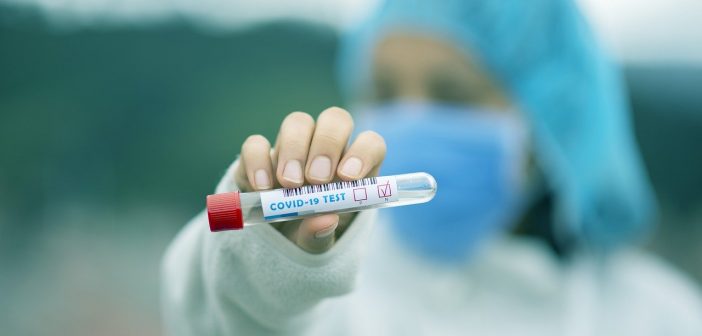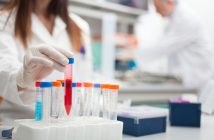The coronavirus disease is preliminary a respiratory infectious disease caused by a novel coronavirus also termed as COVID-19 or SARS-CoV-2. It has been declared as a global pandemic by the World Health Organization (WHO) on March 11, 2020, affecting over 210 countries and territories around the globe.
As we know, the COVID-19 virus spread primarily through droplets of saliva or discharge from the nose when an infected person coughs or sneezes. The test is done on respiratory samples such as a nasopharyngeal swab or sputum sample using Reverse Transcription Polymerase Chain Reaction (RT-PCR). However, the test is time-consuming and costly as well as not readily available for all centers.
As an important alternative, rapid antibody-based diagnosis is picking momentum in COVID-19 management. Just like other viral infections, COVID-19 also produces antibodies starting as early as 3 days. These antibodies can be detected using rapid test (serology) kits within a few minutes using just a drop of blood, plasma, or serum of the patients.
In the present situation, a rapid antibody detection test is useful for the general screening of masses to understand the spread of the infection. A large survey using a rapid antibody test is possible and crucial to screen the asymptomatic cases or carriers as well as to know the strength of herd immunity in the given population.
In addition to that, it is also helpful for prognosis assessment by confirming the development of immunity in a COVID-19 positive patient once the RT-PCR test for the virus becomes negative. When we have specific vaccines available for COVID-19, antibody testing would also be helpful to identify vaccine efficacy.
With no established anti-viral treatment or vaccine available for COVID-19 infection, identification of the infected patients, as well as immune individuals, would be required to help manage the pandemic correctly. This can be estimated only by mass antibody testing of the population to make sure they do have the required immunity to prevent further spread of the disease when we reopen our routine lifestyle, a kind of ‘immunity passport’.
Beware of false beliefs
With the present evidence, it is not wise to claim that the presence of anti-corona antibodies confers protection against the second virus infection. Unfortunately, to meet the current high demands, the COVID-19 antibody test kits are not vigorously evaluated for their sensitivity and specificity. Therefore, there are some concerns about the reliability of antibody tests, particularly in regards to the number of false negatives, which could inflate the spread or false positives which could indicate wrong infection rate estimates.
Take home message
Presently, the best way to stop COVID-19 infection is via social distancing. In addition to that, personal hygiene and immunity are essential for shield from the COVID-19, especially when we resume our routine lifestyle.
Though the qualitative antibody testing may not be relied on to confer 100% protection against COVID-19, its use is very helpful in the overall management of the pandemic.








2 Comments
True. But many counties have shifted their focus from the antibody testing considering the limitations. However, it is still one of the important and cost-effective survey tools to skout community transmission.
I like the idea of using antibody testing for checking the efficacy of vaccines!
This is really a need especially when we are fast-tracking the vaccine development with very limited data requirements and a short follow-up. We don’t know for how long the Ab titers will be maintained in the vaccine recipients.
Rapid antibody tests can be used periodically to check if the vaccine still maintained the antibodies (though we can’t check exact titers with rapid tests). To determining exact Ab titers, one may opt for ELISA based Ab assessment.